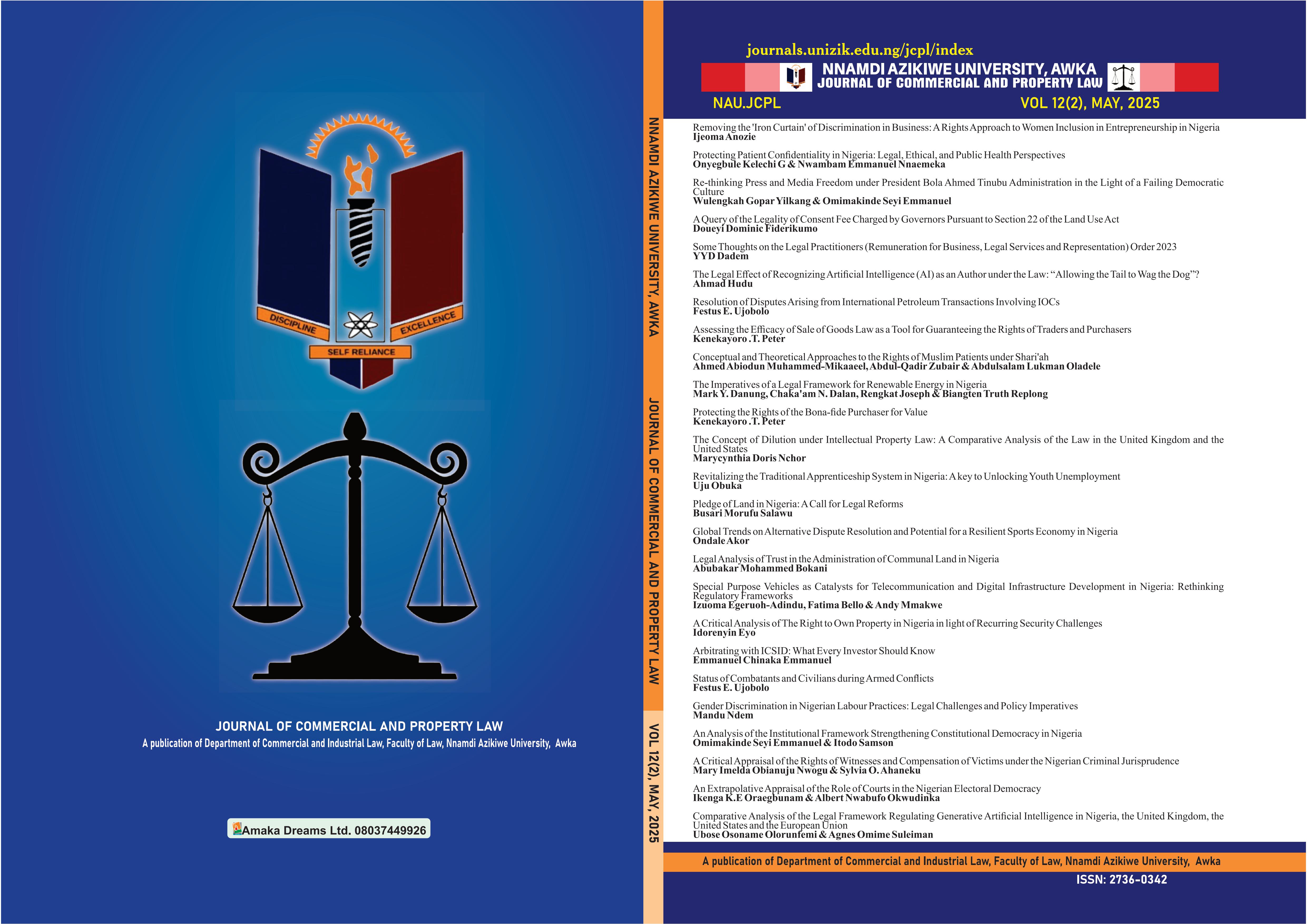RESOLUTION OF DISPUTES ARISING FROM INTERNATIONAL PETROLEUM TRANSACTIONS INVOLVING IOCS
Keywords:
Dispute resolution, settlement, arbitration, mediation, upstream sectorAbstract
The resolution of disputes involving international petroleum transactions all fall within the purview of upstream petroleum sector in the oil and gas industry involving big multi-national oil companies like Royal Dutch Plc, NNPCL, Total Energies, Exxon Mobil, Chevron Corporation, etc. However, disputes in the oil and gas industry take an almost infinite variety of forms and therefore when considering the best practices for resolution of oil and gas disputes in the upstream sector, no particular mechanism of alternative dispute resolution (ADR) fits all. Some disputes can be more amenable to resolution through a particular process or in a particular form than others. These mechanisms of alternative dispute resolution include negotiation, mediation, conciliation, arbitration. Alternative dispute resolution is simply a process of initiating alternative methods and procedures in the resolution of disputes in the oil and gas industry without resorting to litigation, which is more expensive and time consuming. Alternative dispute resolution provides a confidential and alternative way or method of tackling legal disputes in the oil and gas sector without going through the litigation or court system. Using doctrinal research methodology, this paper provides a comprehensive review of the dispute settlement mechanisms and also analyzes advantages, problems of settlement of international transaction and possible solution and ways to tackle the menace. The sources of authority and information are mainly from primary sources of data and they include statutes, case law and customs. The findings of the paper show that alternative dispute resolution mechanisms is relatively effective in the oil and gas industry in Nigeria and that the alternative dispute resolution mechanisms used in the upstream sector of the oil and gas industry are arbitration and mediation alone in line with the new Arbitration and Mediation Act 2023. It is recommended that all oil and gas disputes should be settled through alternative dispute resolution mechanisms to enable for the smooth running of the oil and gas industry and that the power to make binding decisions is of fundamental importance, and thus distinguishes arbitration and mediation as methods of resolving disputes from other alternative dispute resolution procedures in arriving at a negotiated settlement.

